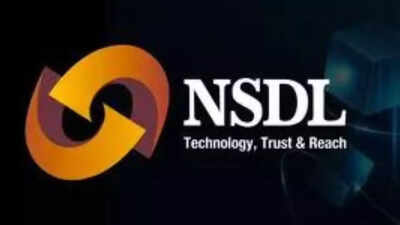Meet the richest AI billionaires turning smart tech into billion-dollar fortunes including Sam Altman, Jensen Huang and more |

Artificial Intelligence (AI) has evolved from a futuristic concept to an everyday necessity, influencing industries ranging from healthcare and finance to entertainment and communication. It automates routine tasks, enhances productivity, and fuels innovations like ChatGPT, AI-driven translation services, and virtual gaming experiences.The growth of AI has also created a new class of billionaires, some of whom have built companies from scratch, while others have pivoted established businesses toward AI-driven opportunities. Backed by massive investments from Microsoft, Apple, Meta, and other global players, these individuals represent the cutting edge of technology and entrepreneurship. From Jensen Huang’s hardware empire to Alexandr Wang’s data infrastructure solutions, and from Sam Altman’s AI innovation to Yao Runhao’s virtual gaming platforms, these billionaires illustrate how AI is reshaping industries and redefining entrepreneurship.
List of richest AI billionaires
Source: Forbes
World’s wealthiest AI moguls ranked
Jensen Huang
Jensen Huang, co-founder and CEO of Nvidia, sits at the top of the AI billionaire list with an astonishing $113 billion (£151 billion) net worth. Nvidia initially focused on advanced graphics processing units (GPUs) for gaming and professional visualization. However, as AI adoption accelerated, these GPUs became the standard for training and running large language models like ChatGPT and Meta AI.Huang’s strategic vision transformed Nvidia into the backbone of the AI industry. In July 2025, the company reached an unprecedented $4 trillion valuation, reflecting how central its hardware is to AI infrastructure. Owning 3% of Nvidia, Huang’s wealth grew by over 300% in just one year, making him one of the top 20 richest individuals worldwide.
Alexandr Wang
At just 26 years old, Alexandr Wang has secured his place as the youngest self-made billionaire in the AI sector. He founded Scale AI at the age of 19, after dropping out of MIT, to focus on providing data labeling and annotation services essential for AI training.Scale AI works with over 300 high-profile clients, including Meta, Google, and General Motors, supplying the data infrastructure required to build machine learning models. The company’s valuation reached $14 billion (£10.5 billion) in 2024, and Wang’s 14% ownership stake boosted his net worth to $2.7 billion (£3.6 billion). His success highlights how even niche AI services can yield massive fortunes.
Sam Altman
Sam Altman, CEO of OpenAI, is one of the most prominent faces in artificial intelligence. While OpenAI itself is valued at around $300 billion (£225 billion), Altman does not personally hold equity in the company. His wealth, estimated at $1.9 billion (£1.4 billion), stems from early investments in companies like Stripe, Reddit, and Helion Energy, combined with the success of his previous startup, Loopt, which he sold for $42 million in 2012.Altman’s leadership at OpenAI popularized generative AI technologies such as ChatGPT, setting global trends in how businesses and consumers interact with AI. His influence extends beyond wealth, positioning him as one of the key thought leaders shaping AI’s future.
Phil Shawe
Phil Shawe, co-CEO of TransPerfect, built one of the world’s largest translation and localization companies by leveraging AI-powered language processing. TransPerfect offers services across industries like law, healthcare, gaming, and entertainment, helping businesses operate in multiple languages with enhanced accuracy and efficiency.Founded in 1992 from a dorm room at New York University, TransPerfect generated $1.3 billion (£976 million) in revenue in 2024. Shawe owns 99% of the company, securing a personal fortune of $1.8 billion (£1.3 billion). His journey shows how AI technology can transform even traditional industries like language services into billion-dollar enterprises.
Dario Amodei
Dario Amodei, a former vice president of research at OpenAI, left to co-found Anthropic in 2021. His company focuses on building safe, reliable AI systems using reinforcement learning techniques that allow AI models to adapt through human feedback.Anthropic’s approach to ethical AI and safety-first principles resonated with investors and industry leaders, pushing the company’s valuation to $61.5 billion (£46.2 billion) by 2025. Amodei’s net worth has reached $1.2 billion (£901 million), proving that prioritizing responsibility in AI development can be both impactful and profitable.
Liang Wenfeng
Liang Wenfeng, once largely unknown outside China, made headlines with DeepSeek-R1, a large language model that outperformed ChatGPT on certain benchmarks while being five times cheaper to run. This innovation shook global markets, causing Nvidia’s stock to drop 17% in a single day as investors reacted to the potential shift in AI computing costs.Wenfeng previously founded a successful hedge fund, and he used his financial expertise to build DeepSeek into one of the most cost-efficient AI providers globally. His net worth now stands at $1 billion (£751 million), making him a key figure in China’s growing AI industry.
Yao Runhao
Yao Runhao, CEO of Paper Games, has carved out a unique niche by combining AI with gaming. His company’s hit product, Love and Deepspace, uses artificial intelligence to create virtual dating simulations with interactive, personalized storylines.The game attracts over six million monthly users, showcasing the demand for AI-driven entertainment. Paper Games employs around 2,000 staff and focuses primarily on the female gaming market in China, highlighting how AI is revolutionizing interactive leisure experiences. Runhao’s innovation has earned him a net worth of $1.3 billion (£977 million).Also Read | Jeff Bezos and Lauren Sánchez spotted with Leonardo DiCaprio on $485 million superyacht after luxurious Venice wedding





